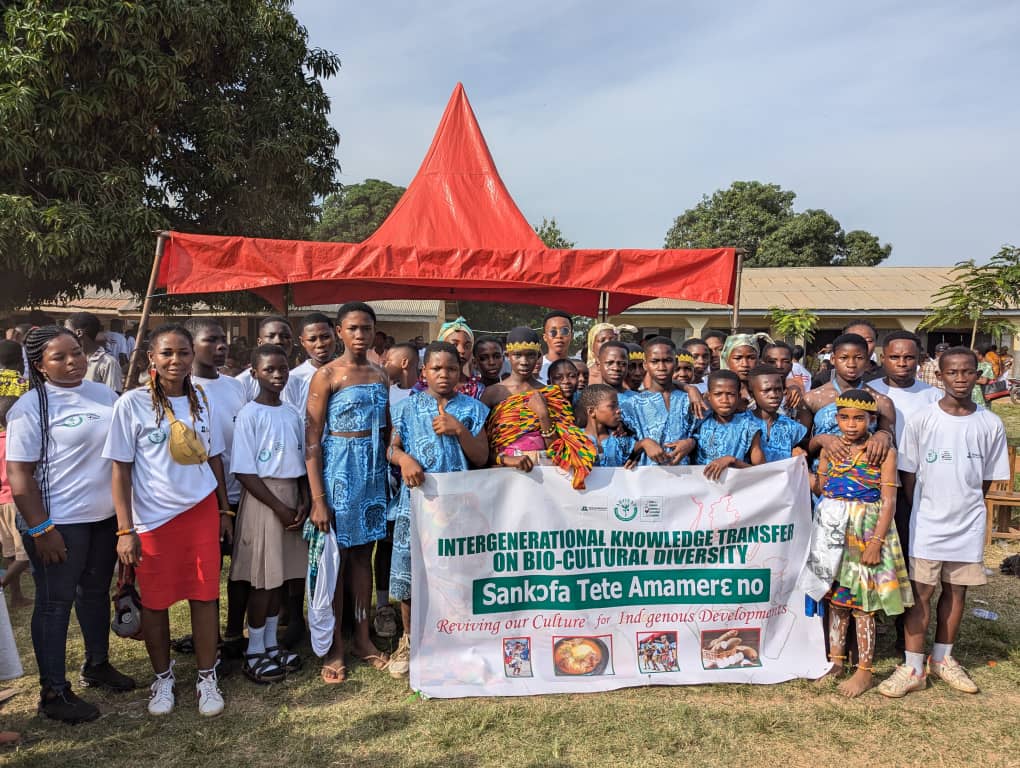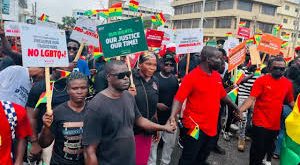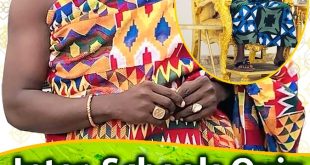The Abrono Organic Farmers Project (ABOFAB) in collaboration with the Centre for Indigenous Knowledge and Organizational Development (CIKOD) have organized a comprehensive knowledge transfer workshop on bio-cultural diversity to revive the cultural heritage of Ghana and promote sustainable development.
The training held at Forikrom in the Techiman South Metropolitan Assembly, was under theme “Reviving Our Culture for Indigenous Development” brought together experts from Wageningen University Research, Abrono Organic Farming Project, and local stakeholders.
The program was aimed at integrating indigenous with modern knowledge and help preserve the culture and traditions of the country as CIKOD facilitated sessions on indigenous knowledge systems, showcasing traditional practices and innovations that have sustained local communities for generations.
Nana Kwao Adams, CEO of ABOFAB, emphasized the urgent need to transition from inorganic farming practices, citing their devastating impact on human lives and the environment. “Inorganic farming is affecting lives, and we must change these practices to protect lives and properties.
“We must go back to the indigenous way of farming to protect our environment and preserve our natural resource.”
“The aim of today’s program is to create the opportunity for the younger generation to learn about our way of life which is our culture.” He said.
According to him, Ghanaians have discarded their cultural heritage and as a results are suffering from a lot of diseases which could have easily be prevented if “we stick to our way of life.”
“The truth is, we have discarded our culture and as a result, we are suffering as a country, we are getting a lot of diseases from the food we eat, we are destroying our natural resources all because we have thrown away our culture and as a result we no longer value what we have as a country.
“Noncommunicable diseases are now common among the citizenry because we have stopped eating our local foods, we have change our lifestyle and that is affecting us a lot.” He told the media.
Nana Kwao Adams continued, “so we organized this program to create the platform for the elderly in our community to interact with the upcoming generation to educate and instill our our culture, our way of life in them.
“We believe that through music, dance, and farming, we can transmit our culture to the younger generation and by so doing, we can protect our environment.”
Representatives from CIKOD Mr Bernard Buri shared expertise on sustainable agriculture, highlighting the benefits of organic farming for human health, environmental conservation, and economic growth.
He explained that, his outfit seeks to support communities to build on their existing knowledge in improving agriculture and other sectors of the economy.
He said knowledge integration is the best way to develop a country since aside the knowledge gain in school, every community has its own indigenous knowledge that the inhabitants of the community thrives on.
“Our basic purpose is to see how best we can support our communities to build on the knowledge they already have.
“We believe that in every community, they have their own indigenous knowledge, so we want to see how they can combine the knowledge they have in the indigenous system with the new knowledge they are learning at school.
“In schools, they teach them a lot of things from English to Mathematics but they don’t teach them the knowledge from our culture, so we want to see how we can learn from the culture especially from the elders and how they can transfer that to the knowledge they have learn in the modern educational system with the hope that, in the future we will promote indigenous development.
“Our elders are the reciprocity of knowledge in the community, so the idea is to see how the elders can impact the knowledge they have to the rest of the community.” He said.
Elvisanokyenews.com
 ElvisAnokyeNews.com Latest News, Politics, Health, Education & More
ElvisAnokyeNews.com Latest News, Politics, Health, Education & More




